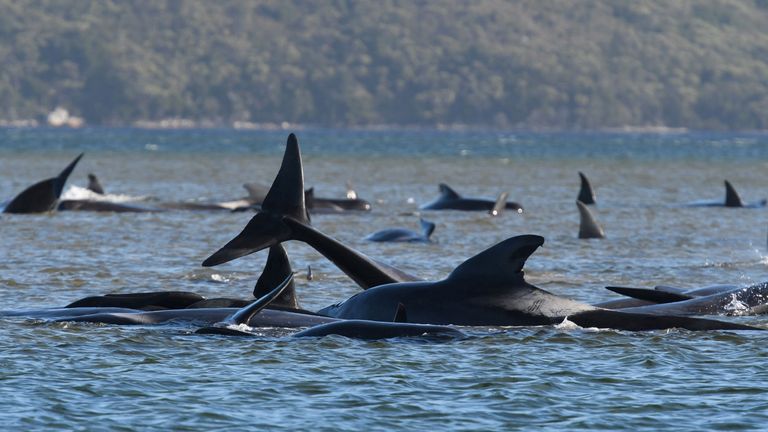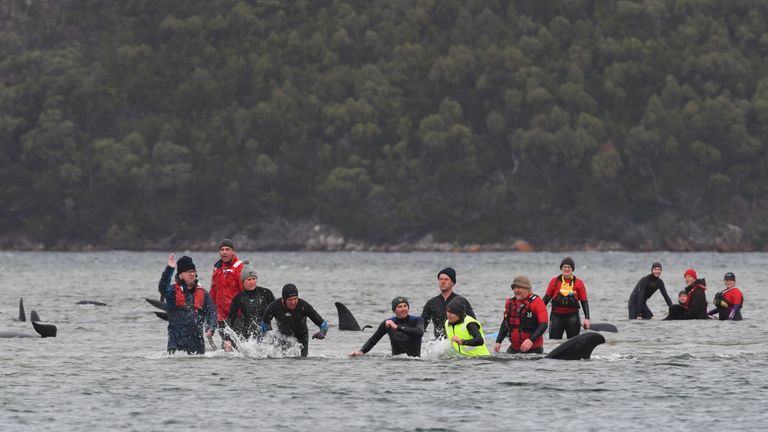380 whales have died after becoming stranded off Australian coast
Officials believe that the new group of the whales found stranded are mostly dead, and cannot be rescued.
Thursday 24 September 2020 09:32, UK
Around 380 whales have died after becoming stranded in an inlet off the coast of the Australian island of Tasmania, according to officials.
In the remote town of Strahan, rescuers had been scrambling to save the survivors among what was thought to be 270 pilot whales on Monday, from a beach and two sandbanks.
However, a further 200 stranded whales were seen from the air on Wednesday, less than six miles (10km) to the south of those, according to Tasmania Parks and Wildlife Service Manager Nic Deka.
"From the air, they didn't look to be in a condition that would warrant rescue," Mr Deka said. "Most of them appeared to be dead."
Crews will be sent to the creatures by boat, to assess whether they can be saved or not, he added.
Rescuers moved around 30 of the stranded whales from their original position to the open seas, however, many of them became stranded again.
Officials estimate around a third of the original group of whales had died by Monday evening, with a further update expected later on Wednesday.
The Australian island is the only part of the country prone to mass whale strandings, with the current one being the first since 2009 to involve more than 50, and is the biggest ever recorded by the government.
Pilot whales are a species of oceanic dolphin that grow to seven metres (23ft) long and can weigh up to three tonnes.
Drawing them back out to sea can include physically pushing the animals or using specialised tarpaulins and pontoons to drag them to deeper water. Rescuers try to keep the whales upright to avoid disorientation.
Scientists do not know why whales, which travel together in pods, sometimes beach themselves - but they are known to follow a leader as well as gather around an injured or distressed whale.
Marine biologist Dr Olaf Meynecke told Paste BN that because the whales are loyal to each other, they could be following each other into danger.
"These animals use sonar and are going into shallow bays and completely lose orientation," he said.




